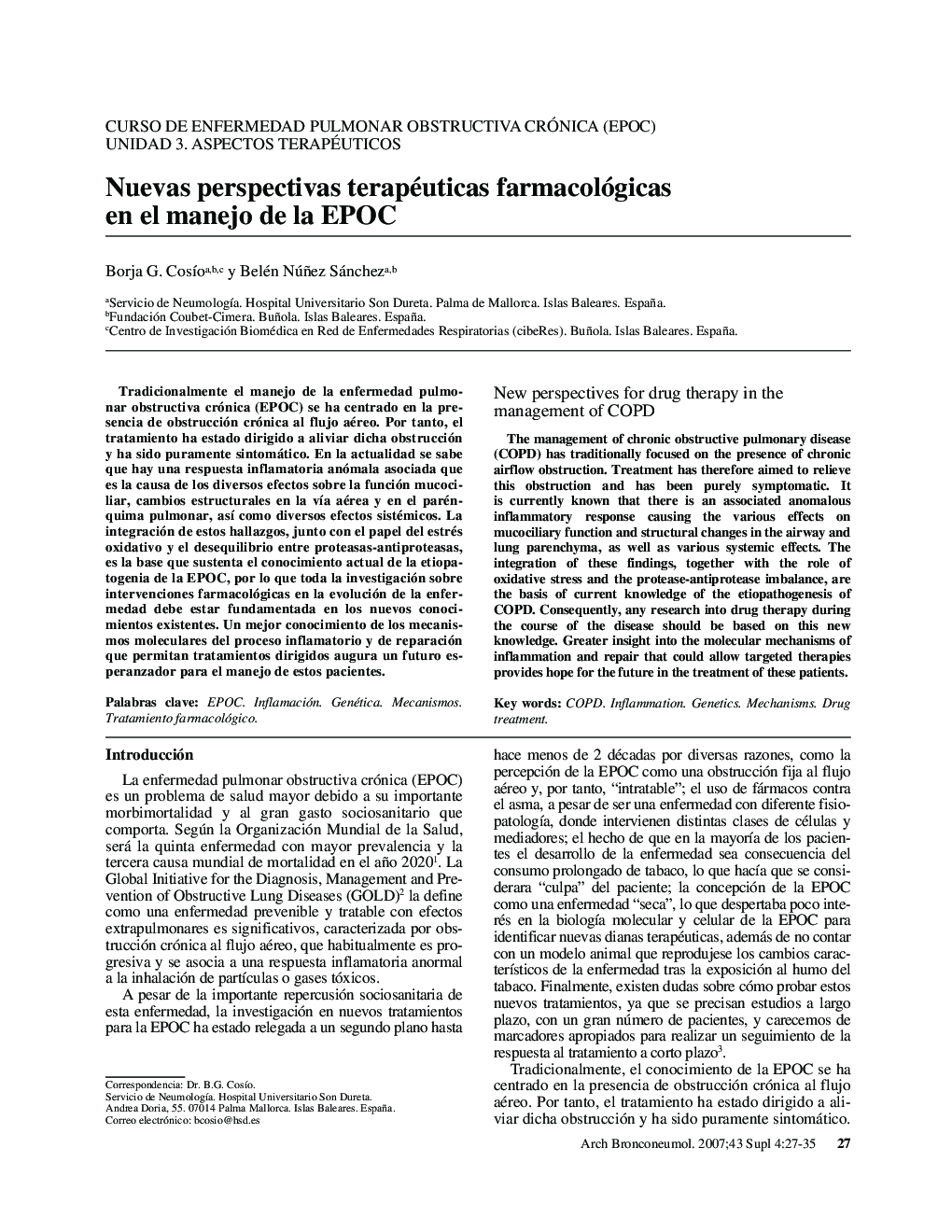| Article ID | Journal | Published Year | Pages | File Type |
|---|---|---|---|---|
| 4205027 | Archivos de Bronconeumología | 2007 | 9 Pages |
Abstract
The management of chronic obstructive pulmonary disease (COPD) has traditionally focused on the presence of chronic airflow obstruction. Treatment has therefore aimed to relieve this obstruction and has been purely symptomatic. It is currently known that there is an associated anomalous inflammatory response causing the various effects on mucociliary function and structural changes in the airway and lung parenchyma, as well as various systemic effects. The integration of these findings, together with the role of oxidative stress and the protease-antiprotease imbalance, are the basis of current knowledge of the etiopathogenesis of COPD. Consequently, any research into drug therapy during the course of the disease should be based on this new knowledge. Greater insight into the molecular mechanisms of inflammation and repair that could allow targeted therapies provides hope for the future in the treatment of these patients.
Keywords
Related Topics
Health Sciences
Medicine and Dentistry
Pulmonary and Respiratory Medicine
Authors
Borja G. CosÃo, Belén Núñez Sánchez,
